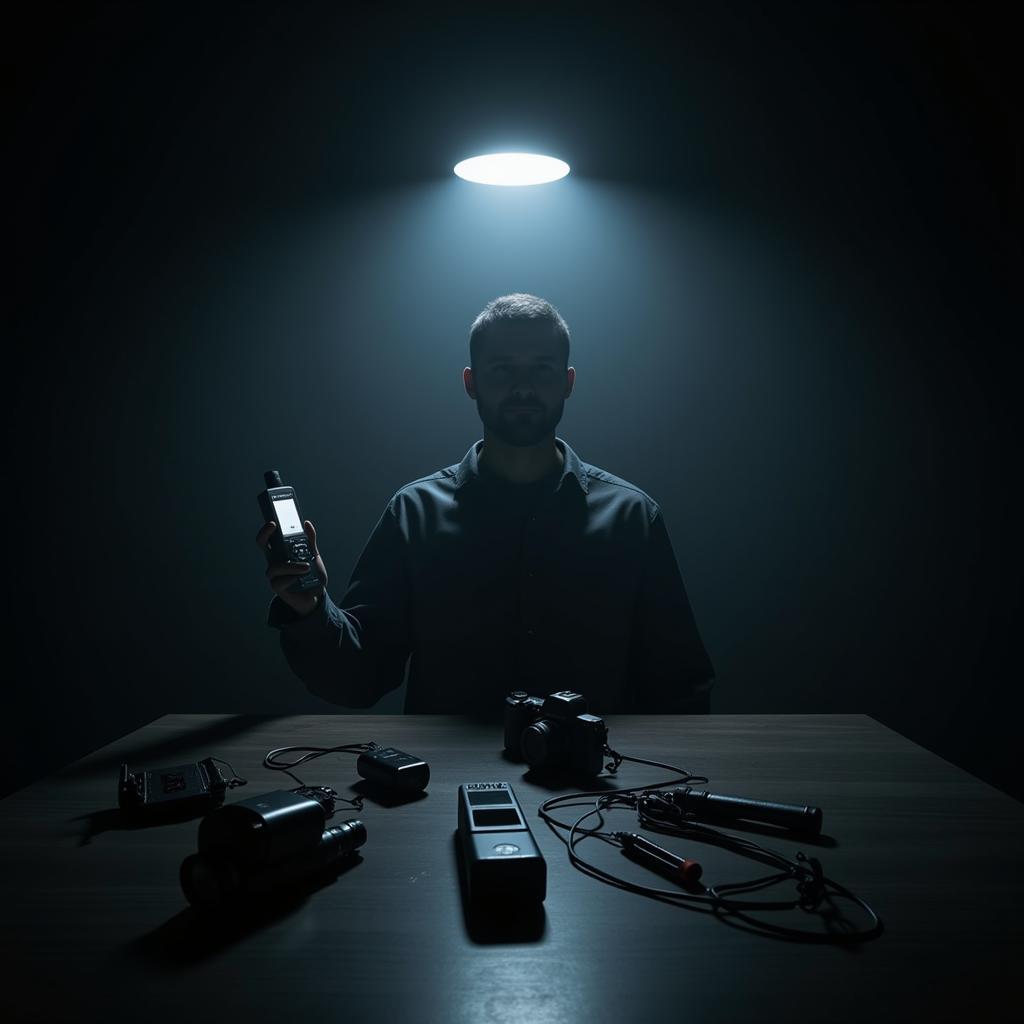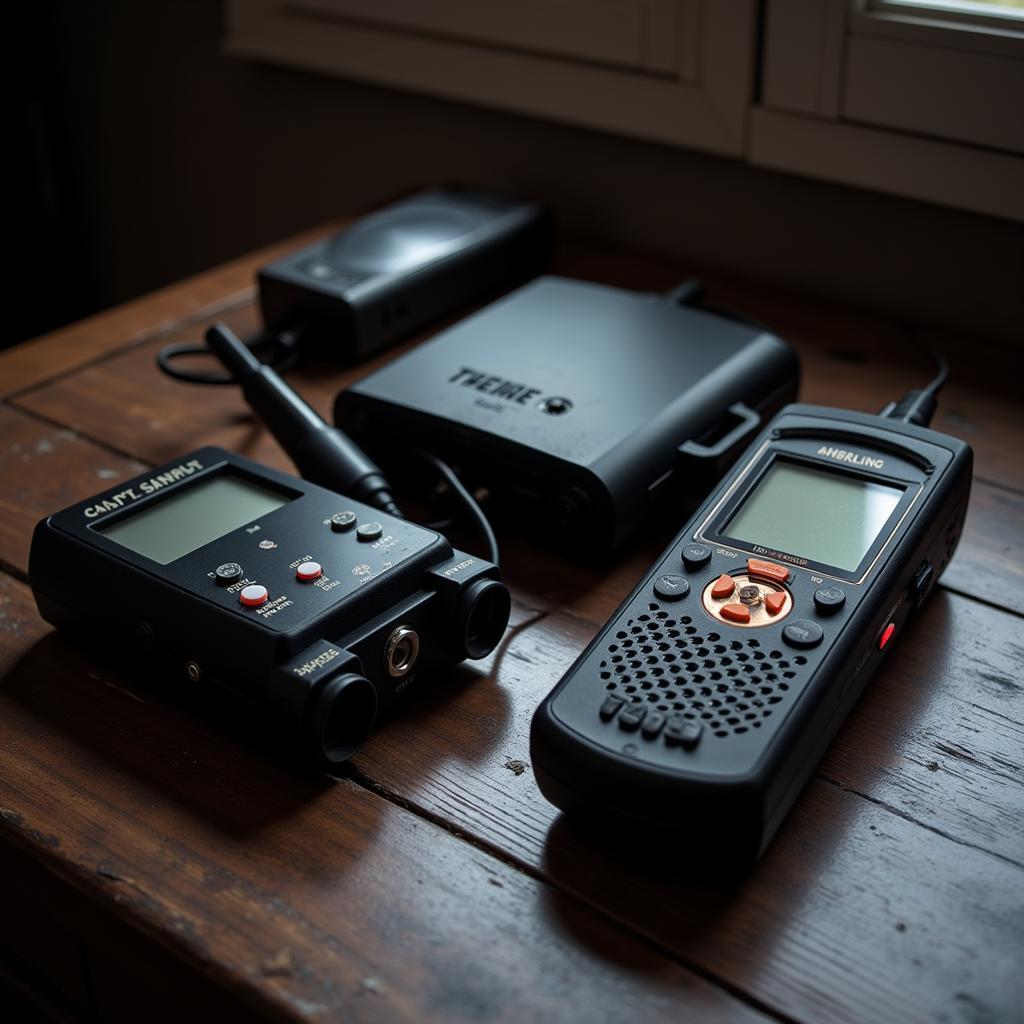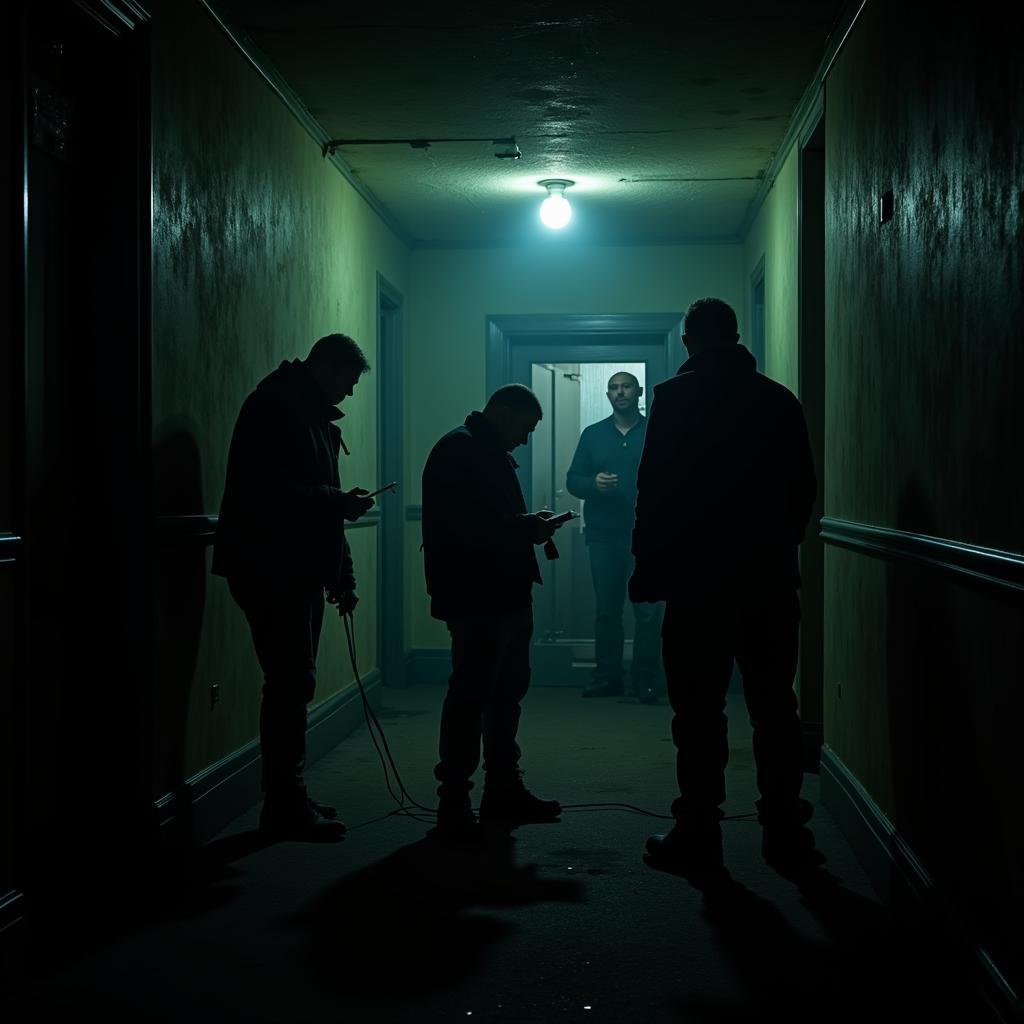Exploratory research questions are the key to unlocking mysteries, especially within the realm of the paranormal. They form the foundation of any investigation into the unknown, guiding us through uncharted territories of unexplained phenomena. These questions are designed to explore a topic, gain initial insights, and shape future, more focused research. They are essential in fields where established theories are lacking, and the paranormal certainly fits that bill.
 Exploratory Research Questions in Paranormal Investigations
Exploratory Research Questions in Paranormal Investigations
Crafting Effective Exploratory Research Questions
What makes a good exploratory research question in paranormal research? It’s a delicate balance between open-ended inquiry and a specific focus. These questions should be broad enough to allow for unexpected discoveries, yet targeted enough to provide a sense of direction. For instance, instead of asking “Do ghosts exist?”, a more exploratory approach would be “What environmental factors correlate with reported ghost sightings?” This shift allows for a wider range of possibilities and potential explanations. Examples of exploratory research questions often begin with “what,” “how,” or “why,” encouraging deeper exploration. Check out our examples of exploratory research questions for more inspiration. Need help with research questions in social work? We have resources for that too.
 Tools Used in Paranormal Investigation
Tools Used in Paranormal Investigation
Examples of Exploratory Research Questions in Paranormal Research
Let’s delve into some specific examples of exploratory research questions within different areas of paranormal investigation:
- Hauntings: How do historical narratives of a location influence reported paranormal experiences?
- Cryptozoology: What are the common characteristics of eyewitness accounts of Bigfoot sightings?
- ESP: What physiological changes, if any, occur during reported instances of telepathy?
- UFOs: What patterns emerge in the geographical distribution of UFO sightings?
These questions open doors to deeper investigation, moving beyond simple yes/no answers and encouraging a more nuanced understanding of these phenomena. If you are interested in qualitative research, understanding its qualities is crucial for proper investigation. You can learn more about the qualities of qualitative research on our site.
Why Exploratory Research is Crucial for Paranormal Investigations
The paranormal field is rife with speculation and anecdotal evidence. Exploratory research provides a structured approach to sift through these accounts, identify patterns, and formulate testable hypotheses. It helps us move from subjective experiences to more objective analysis. “Exploratory research is like mapping uncharted territory,” says Dr. Amelia Hayes, a leading researcher in parapsychology. “It helps us identify the landmarks and lay the groundwork for future expeditions.”
 Paranormal Research Team Conducting an Investigation
Paranormal Research Team Conducting an Investigation
Moving from Exploration to Explanation
Exploratory research isn’t about finding definitive answers; it’s about asking the right questions. It sets the stage for more rigorous, quantitative research that can test specific hypotheses and potentially provide more conclusive evidence. “The beauty of exploratory research is its ability to generate new avenues of inquiry,” adds Dr. Hayes. “It’s a continuous process of questioning and refining our understanding of the unknown.” Exploring different sociology research topic questions can also offer valuable insights. Check out our sociology research topic questions for further inspiration. Need a tool to generate your own questions? Try our research questions generator.
Conclusion
Exploratory research questions are essential for navigating the complexities of the paranormal. By crafting thoughtful, open-ended inquiries, we can begin to unravel the mysteries that surround us and gain a deeper understanding of the unexplained. Remember, the key is to ask the right exploratory research questions, and the answers will follow.
FAQ
- What is the difference between exploratory and explanatory research?
- What are some examples of exploratory research methods?
- How do I formulate a good exploratory research question?
- Why is exploratory research important in the paranormal field?
- What are some limitations of exploratory research?
- What are some common pitfalls to avoid when conducting exploratory research?
- How can I use exploratory research to guide further investigation?
Need help with your Paranormal Research? Contact us! Phone: 0904826292, Email: [email protected] or visit us at No. 31, Alley 142/7, P. Phú Viên, Bồ Đề, Long Biên, Hà Nội, Việt Nam. We have a 24/7 customer support team ready to assist you.